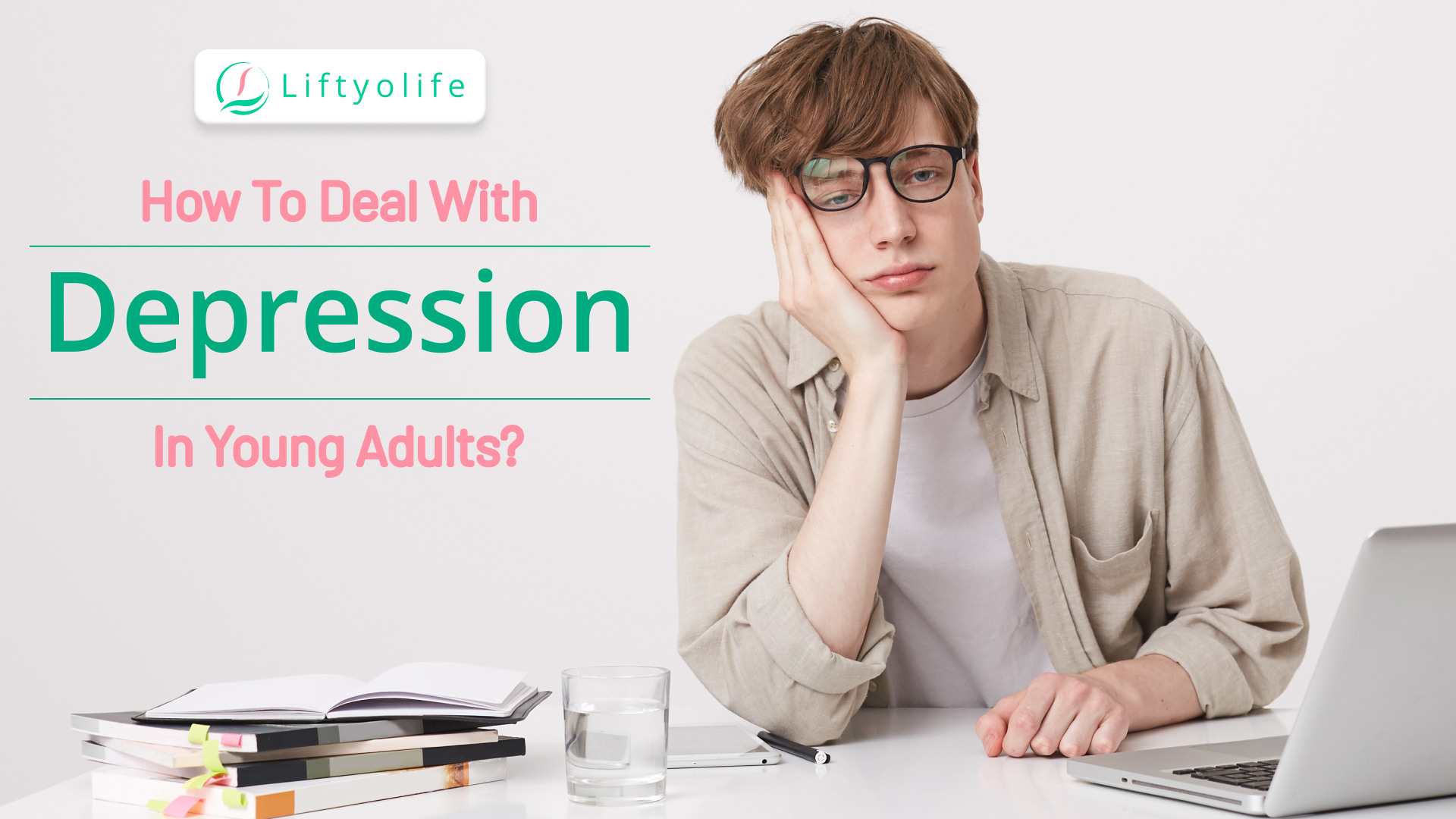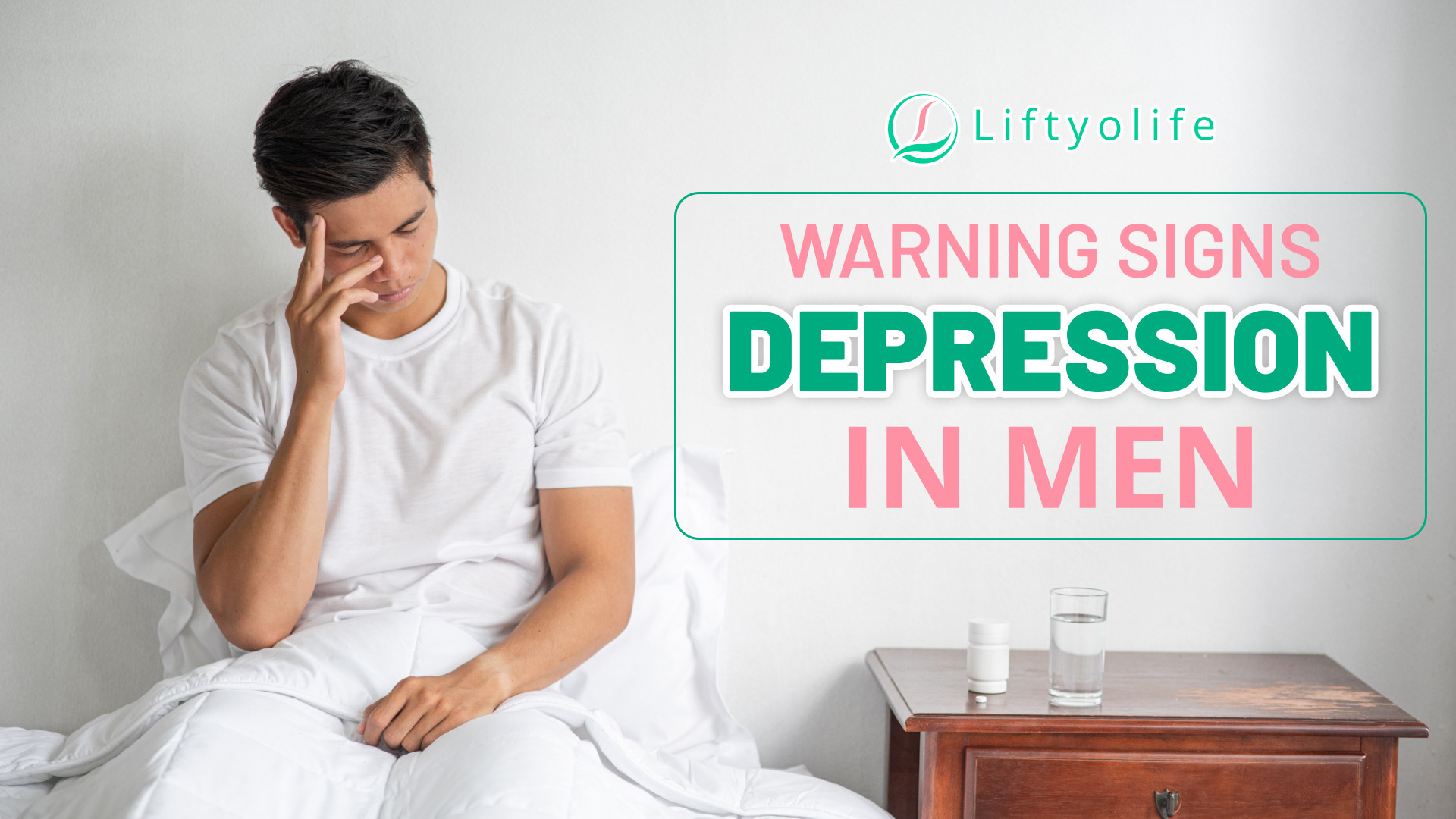Depression In Young Adults – How To Deal?

Do you know how to deal with depression in young adults? A young adult is a person who is in the years following their adolescence. These people are under a lot of pressure because they are at the beginning of adulthood. It could be the injustice of life, rigors of work, the pressure to succeed when so many of your friends are already successful, or even the pressure to be wealthy, etc. These things will cause stress, which will gradually build up and cause depression at this stage. Today Liftyolife (liftyolife.com) will tell you how to beat this mental disorder.
1. What is depression?
The human mood is the most easily changed factor; you can be happy and excited in the morning but stressed and frustrated in the afternoon. These are widespread human reactions, particularly among young people. So, when do these reactions become depressive?
Depression is a mental sickness that occurs when those feelings persist overtime or take over and interfere with your daily life.
2. Risk factors for depression
According to the findings of a National Institute of Mental Health survey, nearly 11% of young adults suffer from depression. This means that one in every ten people has that mental illness. So, what causes this disease to affect so many young adults?

Risk factors for depression
Here are several factors that may influence the spread and progression of this mental illness:
- Genetics: Your family history plays an essential role in the inheritance of this disease. If you have a parent or sibling who has suffered from depression, your chances of developing depression increase.
- Gender: Women are twice as likely to develop anxiety disorders as they are to develop depression than men. The causes of these gender differences are complex, but they include elements of role strain and a propensity to internalize negative feelings. In general, one out of every five women will experience depression at some point in their lives.
- Nutrition: When the brain does not get enough nutrients to stay healthy, it becomes tired and stressed, which leads to more depression.
- Seasons: The change in seasons and the short lengths of day and night impact some people. They are more likely to develop depression during the winter when the days are shorter and there is less sunlight.
- Hormonal imbalances or chemical: This is yet another important aspect of this mental illness. Imbalances in brain chemicals or hormones can lead to depression.
3. Causes of depression in young people
3.1. Different brains
Adults with fully developed brains and young adults with developing brains have different brains. Neuron (brain cell) connections and functioning continue to be formed and restructured until a person is in their mid-20s. Furthermore, hormone and neurotransmitter levels change in young adults, affecting mood.
3.2. Social media
These days, social media is an integral part of how teenagers and young adults interact and stay updated on current events. Recent research, however, has linked social media use to depression in young adults.
Many studies have proven social media use with these symptoms such as anxiety, insomnia, low self-esteem, and inability to focus.
Fear of missing out (FOMO), unrealistic expectations, and constantly comparing oneself to others are all reasons why social media may potentially contribute to depression.
3.3. Stress and anxiety in the community
Peer pressure, bullying, moving to a new place, problems at school or work, and unrealistic expectations from themselves, family, friends, or culture are all familiar sources of stress in young people. Financial stressors or anxiety about dating and careers can cause additional stress for those in their twenties.
3.4. Trauma in early life
Early losses and emotional trauma may make people more prone to developing depression later in life.
4. Symptoms of depression

Symptoms of depression
4.1. Behavioral changes
Some typical behavioral changes of young adults suffering from depression:
- Use lots of alcohol or drugs.
- Usually complaints of unexplained body headaches and aches.
- Increased food cravings and weight gain, or decreased appetite and weight loss.
- Insomnia or excessive sleeping.
- Tiredness and energy deficiency.
- Outbursts of rage, disruptive or risky behavior, etc.
- Slowing of thought, speech, or movement.
- Agitation or restlessness by pacing, hand-wringing, or an inability to sit.
- Personal hygiene and appearance are given less importance.
- Making a suicide plan or attempting suicide.
- Self-harming behaviors such as cutting, burning, or excessive piercing.
- Inadequate academic performance or frequent absences from school.
4.2. Emotional changes
Some typical emotional changes of young adults suffering from depression:
- Feeling hopeless or empty.
- Frustration or rage, even over trivial matters.
- Self-esteem issues.
- Irritable mood.
- Sadness, crying spells for no apparent reason.
- Extreme sensitivity to rejection or failure and an excessive need for reassurance.
- Disagreement with, or disinterest in, family and friends.
- Loss of interest in usual activities.
- Feelings of inadequacy or guilt.
- Excessive self-blame or self-criticism.
- Thoughts of death, dying, or a suicide occur frequently.
- Having difficulty thinking, concentrating, making decisions, and remembering things.
5. Complications
Depression, like any other illness, can cause emotional, behavioral, and health problems that affect every aspect of a young adult’s life. Complications associated with depression may include, for example:
- Misuse of alcohol and drugs.
- Suicide attempts or actual suicide.
- Family feuds and relationship problems.
6. Treatment for depression in young adults
Transcranial magnetic stimulation (TMS) is the best treatment option for young adults suffering from depression. This method does not result in the common side effects of antidepressant medications, such as weight gain, sedation, and sexual dysfunction. It is also a non-invasive treatment in which the patient is completely awake. Moreover, TMS is a safe and effective treatment for depression in young adults, and it can be a great alternative to antidepressant medications.
Other strategies for treating depression in young adults, in addition to TMS, include:
- Exercise, even if only a little. Physical activity has been proven to promote positive changes in mental health.
- Talk with family, friends, or a medical professional about your feelings. Making time to socialize can also help alleviate feelings of isolation and loneliness.
- Consume nutritious foods. A nutrient-dense diet high in protein and fresh vegetables can help you feel better. Avoid processed foods and excessive sugar consumption.
- Maintain a regular sleep schedule. Go to bed and get up at the same time every day. Set a goal of seven to eight hours of sleep per night.
7. Prevention
Because the causes of depression vary, there is no sure way to prevent depression. However, the following strategies may be helpful:
- Always be prepared to confront and combat negative emotions. Take steps to reduce stress, increase resilience, and boost self-esteem to help you deal with problems as they arise.
- Limit your alone time, keep yourself busy, and seek out friendship and social support, especially during times of crisis.
- Go to see your psychologist and consider treatment as soon as you notice a problem.
- Maintain ongoing treatment even after symptoms have subsided to help prevent a relapse of depression symptoms.
8. When to get emergency help
Suicide is the most heartbreaking thing that can happen to a depressed person. If you believe you are about to hurt yourself or attempt suicide, pick up your phone and:
- dial 911 or your local emergency number;
- contact a suicide prevention hotline at 1-800-273-TALK (1-800-273-8255) if you are in the United States;
- contact a mental health professional;
- seek help from your healthcare provider;
- contact a close friend or loved one.
If your loved ones or friends are contemplating or have attempted suicide:
- make sure that someone remains with that person;
- dial 911 or your local emergency number;
- always take action to obtain assistance. Never dismiss suicidal comments or concerns.
Depression in young adults is not a cause for shame; it is not your fault because this disorder is caused by various objective and subjective factors. And never, ever dismiss the symptoms and signs that your body is sending you. Listen to your body and seek assistance from a loved one or a psychologist. If you have one or more of the symptoms of depression listed above by Liftyolife (liftyolife.com), consider treatment as soon as possible for a healthy mental state.
==> Read More:







